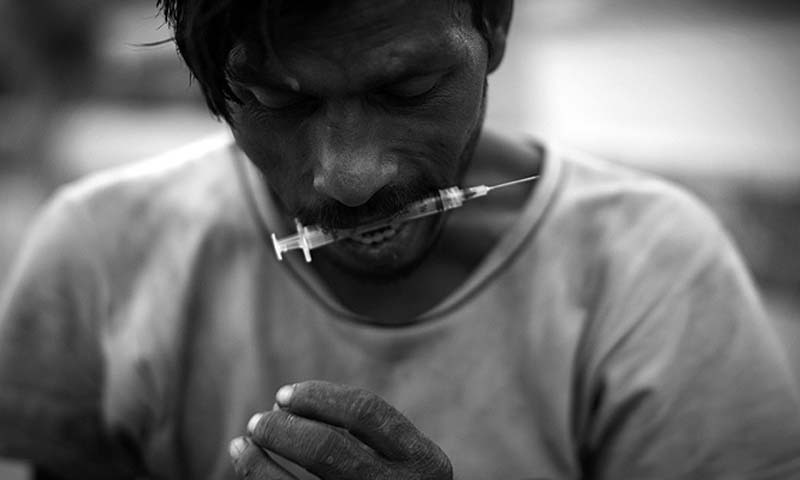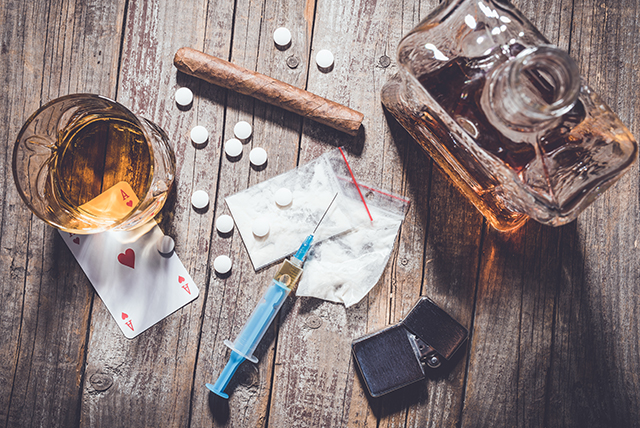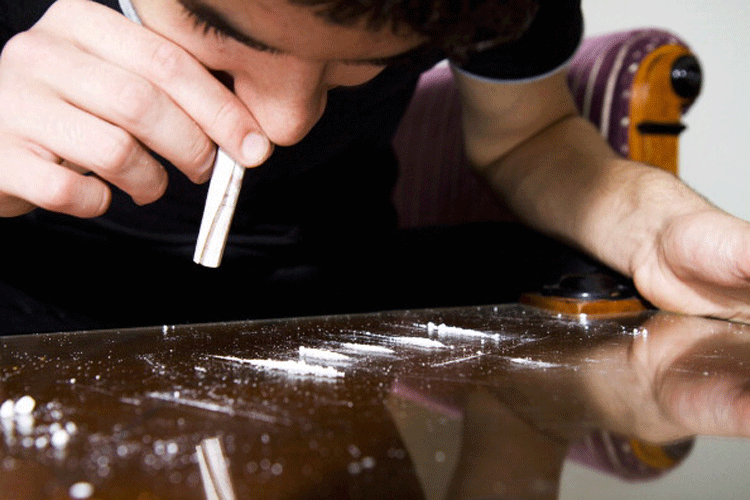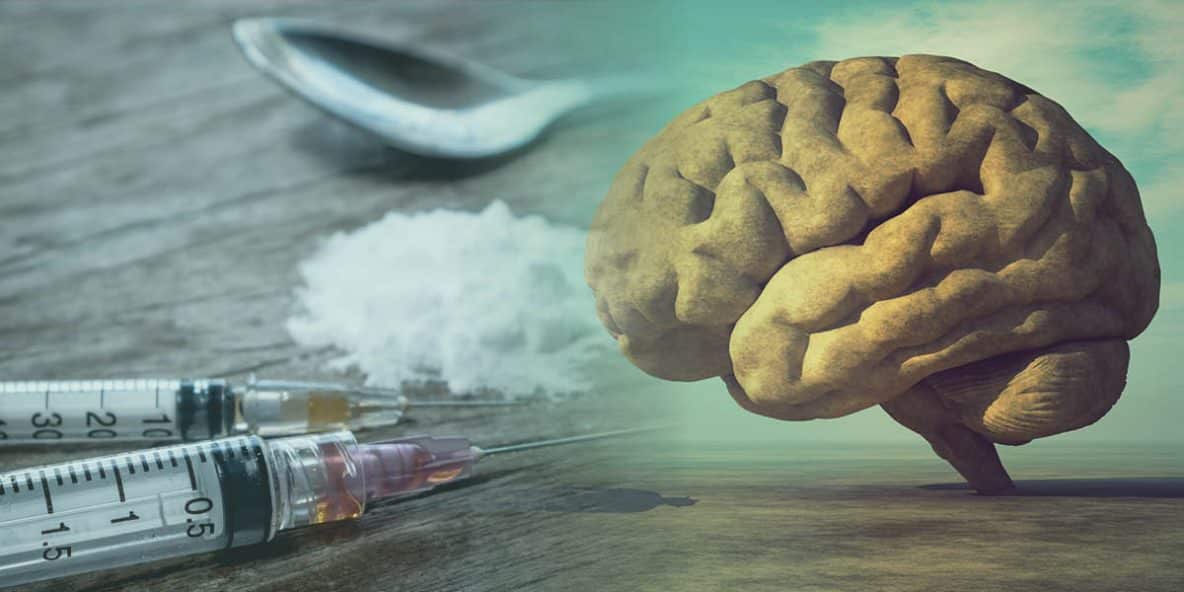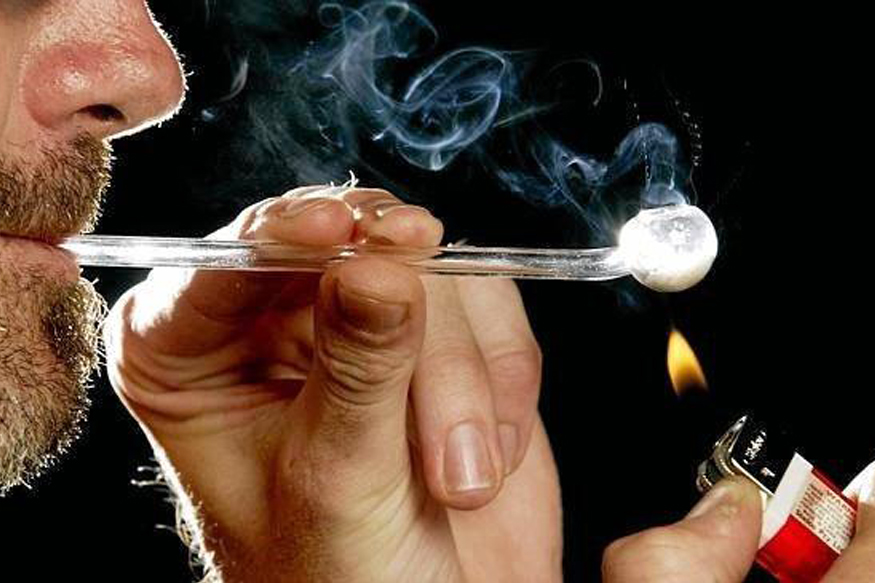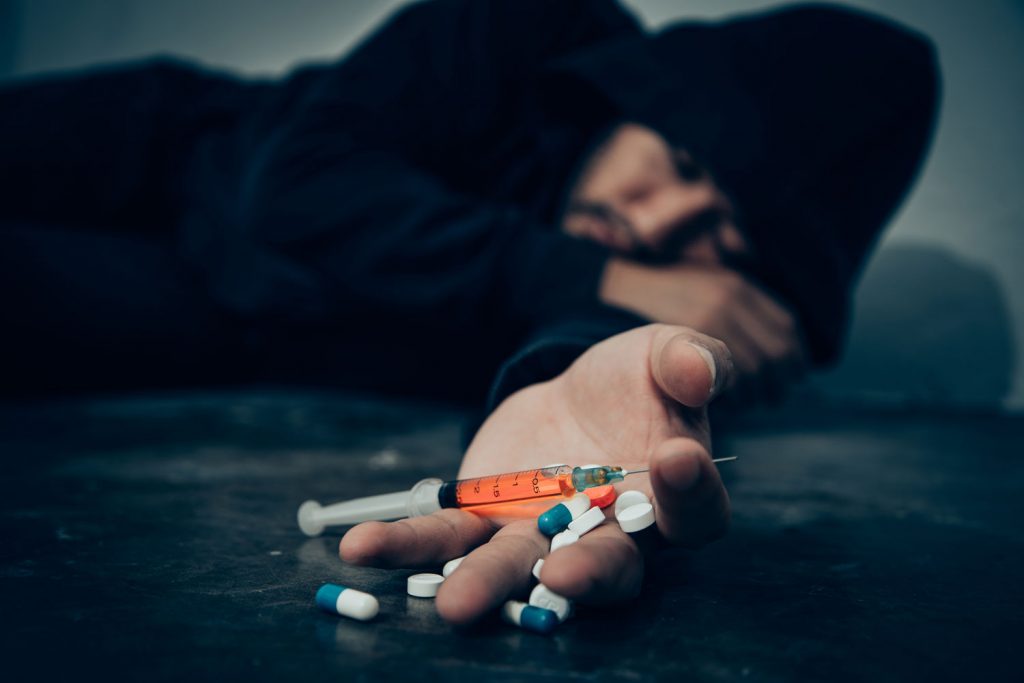Drug addiction is one of the most widely misunderstood conditions in the modern world. Despite how casually the word "addiction" is thrown around, it is far more than just a bad habit or a lack of willpower. Addiction is a deeply rooted, long-term brain disease, and it doesn't simply disappear with a stern “just say no.” If you're someone who finds yourself asking, “Why do people become addicted to drugs?” or perhaps “Why did my loved one fall into addiction?”, it's important to first understand that addiction isn’t a moral failing—it’s a complex medical issue that changes how the brain works over time.
Concerned friends and family often wonder, “How come some people get hooked, and others don’t?” It’s a valid question. Many people experiment with drugs believing they’ll never cross the line into addiction. But the reality is that anyone—regardless of age, background, or status—can develop a dependency. And certain factors make that risk more likely than others.
Common Contributors That Raise Addiction Risk
-
Adverse childhood experiences, like neglect, abuse, or household dysfunction
-
A personal history of being physically or sexually abused
-
Genetic susceptibility (family members who struggle with addiction)
-
Drug or alcohol exposure during pregnancy
-
Minimal parental involvement or loose supervision during teenage years
-
Friend groups that normalize drug use or peer pressure to experiment
-
Mental health conditions like anxiety, depression, or PTSD
These aren’t just arbitrary risk factors; they significantly shape how the brain and body respond to substance exposure. As research continues to show, the roots of addiction grow from both our biology and our environment. The National Institute on Drug Abuse estimates that genetics alone make up about 50% of a person’s vulnerability to addiction. But that other 50%? It's molded by circumstances—things like chronic stress, lack of education, growing up in chaotic neighborhoods, or being in social situations that encourage risky behavior.
Adolescents, in particular, are in a danger zone. Their brains are still under construction—wiring pathways, forming judgments, building emotional regulation. When drugs enter the picture during these critical developmental years, they can hardwire addiction patterns into the brain. In fact, research suggests that nearly 70% of young people who use illicit substances before the age of 13 will develop a clinical addiction within the following seven years. And startlingly, 90% of adults battling substance use disorder began using before their 18th birthday.
What Leads the Brain Into Drug Addiction?
Thanks to modern neuroscience and medical imaging, we now have a much clearer understanding of what drug use actually does to the human brain—and why it’s so difficult to stop once the cycle begins.
Addiction doesn’t happen after a single use. It’s a process, one that begins with regular or binge use. Over time, drug use reshapes brain chemistry, turning what started as a choice into a compulsion. Eventually, the line between “wanting” and “needing” disappears altogether. At this point, drug use stops being voluntary—it becomes automatic.
The root of this transformation lies in a powerful neurotransmitter called dopamine, often called the brain’s "feel-good chemical." When someone uses a drug, the brain releases a surge of dopamine, creating a euphoric feeling. That sensation becomes etched into the brain’s reward system. And like a child repeatedly drawn to candy, the brain begins to chase that rush again and again—except more intensely.
This process essentially hijacks the brain’s reward circuitry. The brain begins to prioritize drug use above everything else—more than sleep, food, responsibilities, relationships, even personal safety. Eventually, the drug doesn’t even have to provide pleasure anymore. As tolerance builds and the “high” diminishes, the brain still pushes the user toward that substance with overwhelming cravings—because, at that point, it believes the drug is essential to survival.
Other parts of the brain aren’t spared either. Judgment, memory, decision-making, and impulse control all start to deteriorate. These biological changes make it harder to stop, even when the consequences pile up.
Is It Possible to Recover from Drug Addiction?
Yes—and the hope here is crucial. While addiction rewires the brain, the brain also has the capacity to heal. With time, the right interventions, and consistency, people can recover and rebuild their lives.
But just as addiction didn’t develop overnight, recovery doesn’t either. Reversing years of compulsive behavior takes patience, support, and a complete shift in lifestyle. Effective treatment isn’t just about detoxing from a substance—it involves retraining the mind to live differently. This might include physical activity, new hobbies, healthy routines, spiritual or creative outlets, and especially—new thought patterns.
Therapies such as cognitive behavioral therapy (CBT) help people reframe their beliefs about drugs, challenge their thought cycles, and find healthier coping mechanisms. Instead of seeing drugs as a lifeline, they start recognizing them as the source of destruction. The goal is to build a new “reward system” in the brain that lights up from family dinners, music, goals, nature, laughter—not from substances.
Over time, and with proper treatment, the brain can begin to crave what is healthy. Cravings may not disappear entirely, but their power over the individual can fade. Tools like long-term therapy, accountability, peer support, and relapse prevention planning are all crucial. With these, many people go on to lead fulfilling, substance-free lives.
Ten Major Reasons Why People Get Hooked on Drugs
Addiction isn’t born in a vacuum. While every story is personal and nuanced, there are ten common reasons people develop substance dependency. Understanding them can shed light on what drives addiction—and how it can be prevented or treated.
1. Inherited Risk from Family Genes
Sometimes, our genes deal us a loaded hand. Just like you can inherit your grandmother’s eyes or your father’s height, you might also inherit a predisposition to addiction. When addiction runs in the family, you’re not just up against a psychological challenge—you’re battling biology.
Children of those with substance use disorder often witness the chaos firsthand, which paradoxically can push them away from drugs—or pull them in. If they do start experimenting, their tolerance levels tend to be naturally higher. This means they need more of a substance to feel the effects, and that escalates the risk of becoming addicted faster.
What starts as occasional partying can spiral into daily use, simply because their bodies and brains are more wired for dependence. For individuals facing this intense biological vulnerability, long-term, inpatient treatment centers are often the most effective path to sustained recovery.
2. Co-Occurring Mental Health Conditions
Mental illness and addiction are deeply intertwined. Many people struggling with depression, anxiety, bipolar disorder, PTSD, or even obsessive-compulsive disorder turn to drugs or alcohol as a way to numb their emotional pain. For them, substances feel like a form of relief, a shortcut to feeling better—until it stops working and only makes everything worse.
In some cases, the mental illness exists first. In others, drug use triggers mental health issues that were previously dormant. Either way, it becomes a vicious feedback loop: the worse they feel, the more they use—and the more they use, the worse they feel.
Unfortunately, denial often complicates things. Many people don’t even realize a mental illness is at the root of their addiction. That’s why dual diagnosis treatment is so critical. It treats both the mental health condition and the addiction simultaneously, improving the odds of a full recovery.
3. Pressure and Influence from Social Circles
Ask most people when they first tried drugs, and their answer will probably involve a party, a friend, or a social gathering. It’s incredibly common to get introduced to substances through peers—especially during the teenage or college years, when identity is still forming and peer approval feels like everything.
At first, it may feel like harmless fun. But over time, recreational use can morph into routine use, and then into dependency. The social circle that once offered escape becomes an enabler of the problem.
For those whose addiction began socially, 12-step groups, outpatient counseling, and changing environments can make a significant difference. In more severe cases, inpatient rehab might be necessary to break the cycle.
4. Coping With Stress and Overwhelm
Let’s face it—life gets messy. Jobs, family, school, finances, health, relationships… any of these can trigger immense stress. And for some, drugs or alcohol seem like a quick fix to take the edge off.
But stress doesn’t disappear—it just gets masked. What begins as occasional use to relax or escape can evolve into full-blown addiction, especially when people rely on substances as their go-to coping mechanism.
Cognitive behavioral therapy (CBT) is often the most effective response here. It teaches healthier responses to stress, reframes thinking patterns, and helps individuals regain control over their choices—even in high-pressure situations.
5. Prescription Drug Dependency
Many people assume that if a doctor prescribes it, it must be safe. But the reality is, prescription medications—especially opioids—have fueled one of the most severe addiction epidemics in recent history.
Medications for pain management like Vicodin, OxyContin, or Percocet are chemically similar to heroin. In fact, they affect the body and brain in nearly identical ways. What starts as a legitimate prescription can quickly spiral into dependency, especially if a patient begins increasing the dosage on their own or combining pills.
When the prescriptions run out, many people turn to illegal alternatives like heroin, simply to avoid the agony of withdrawal. For those struggling with opioid dependency, inpatient rehab and medication-assisted treatments (like Suboxone) offer the best chances of recovery.
6. Escaping the Pain of Trauma
Not everyone who struggles with addiction had a traumatic childhood, but for many, past pain is the silent engine driving their substance use. Physical abuse, sexual assault, emotional neglect, witnessing violence, losing a loved one—these experiences don't just live in memory. They lodge themselves in the nervous system, triggering deep emotional wounds that often go unspoken.
People who carry unhealed trauma often turn to substances as a form of emotional anesthesia. Drugs or alcohol become a temporary shield from flashbacks, guilt, shame, and sorrow. But while they may offer short-term relief, they never resolve the root cause. Instead, they deepen the wound.
To break free from this cycle, trauma-informed therapy is essential. This specialized approach creates a safe space for people to process and release painful memories without judgment. It's not just about quitting drugs—it’s about healing the pain that made drugs feel necessary in the first place.
7. Self-Esteem and Identity Issues
Many people who fall into addiction struggle with a core question: Who am I, really? They may feel like they’re never good enough, always falling short, or constantly needing to prove themselves. Drugs can temporarily fill that void. They offer confidence, energy, social courage, or even just a break from the inner critic that never shuts up.
But as the high fades, so does that illusion. And what’s left is often worse than before: deeper shame, more self-hate, and a stronger need to escape. This becomes an endless feedback loop—one that can be difficult to recognize from the inside.
Long-term recovery for these individuals involves building self-worth from the ground up. Group therapy, creative expression, journaling, or even body-based practices like yoga and dance can help reconnect a person with their identity and sense of value beyond substance use.
8. Habitual Use and Lifestyle Reinforcement
Addiction doesn’t always start with deep trauma or psychological pain. Sometimes, it begins with routine. A drink after work. A pill to sleep. A joint before socializing. Slowly, the habit becomes part of the person’s daily rhythm. It becomes automatic.
And once something becomes habitual, it’s not just a matter of willpower to stop—it’s about reprogramming daily life. This kind of lifestyle-based addiction often sneaks up on people. They may not even identify as having a problem until it’s too late.
Behavioral therapy, time-blocking, new hobbies, and structured support groups can help create a new routine that doesn’t include substance use. Over time, the brain adjusts to the new pattern, and the old habits begin to fade.
9. Seeking Belonging or Community
Humans are wired for connection. When someone feels isolated, misunderstood, or left out, they naturally gravitate toward people and places that offer acceptance. Unfortunately, for many, that sense of belonging is found in the wrong crowd—those who normalize or encourage substance use.
Gangs, street culture, party scenes, or even some online subcultures can create a powerful sense of family. But that bond often comes at a high price. What feels like support may actually be enabling. And once a person becomes entrenched in that world, leaving it can feel like losing their entire identity.
To escape this, individuals need more than just detox—they need a new tribe. Recovery groups, sober social spaces, volunteer work, and community-building programs can provide a healthier, lasting sense of connection.
10. Emotional Numbing and Avoidance
For some people, addiction is about silencing what's too painful to face. Guilt, shame, anxiety, grief, fear—these emotions can feel unbearable when they hit full force. Drugs offer an off-switch. They quiet the noise. They blur the edges of reality. They make it possible, even if only for a little while, to not feel anything at all.
But when someone consistently avoids emotions instead of processing them, they stunt their emotional growth. They never learn how to sit with discomfort, how to feel sadness without drowning in it, or how to manage anger without exploding.
That’s why emotional literacy is a critical part of addiction recovery. Through therapies like Dialectical Behavior Therapy (DBT), people learn to name their emotions, tolerate distress, and gradually accept the full spectrum of human feeling without needing to escape it.
Moving Forward: The Path Out of Addiction
There is no single reason why people become addicted to drugs—just as there is no one-size-fits-all solution. What we do know is that addiction is treatable, preventable, and most importantly—not a life sentence.
Recovery begins with understanding, not judgment. It takes recognizing the unique mix of biology, experience, environment, and emotion that fuels each individual’s struggle. From there, healing is not just possible—it’s powerful.
The journey is long. It requires strength, honesty, support, and often, many attempts. But people do recover. They mend relationships. They rebuild careers. They discover peace they never thought possible.
If you or someone you love is dealing with addiction, know this: help is out there, and the future is not written in stone. It can change—one step at a time, one honest choice at a time.

